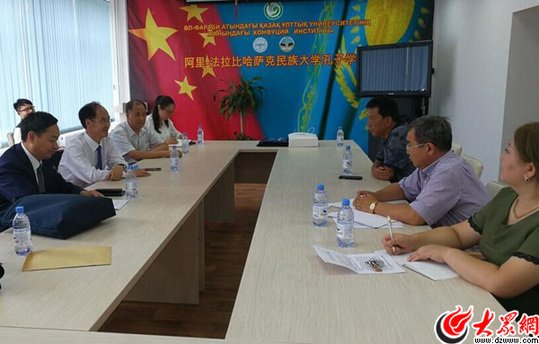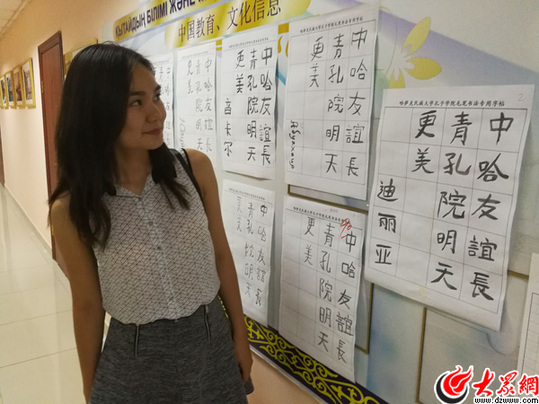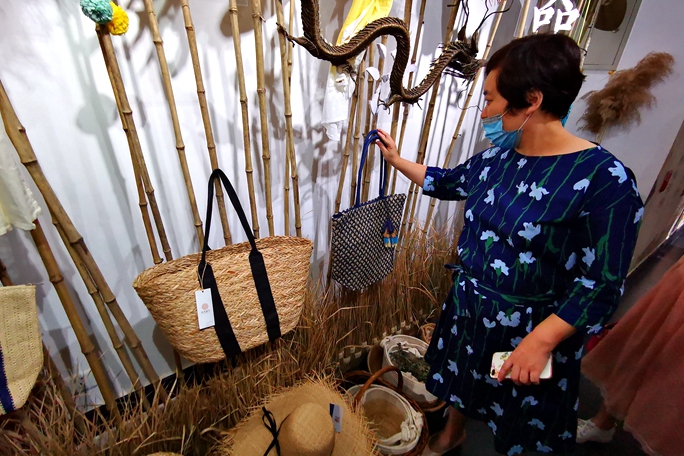Confucius Institute spreads Chinese culture in Kazakhstan
With the implementation of the Belt and Road Initiative, more and more students who are interested in Chinese culture, and especially in Confucian culture, are studying at the Confucius Institute which is active across Kazakhstan.
 |
|
A Shandong government delegation visits the Confucius Institute at Al-Farabi Kazakh National University in Almaty, Kazakhstan on Sept 4. [Photo by Wang Lei/ dzwww.com] |
Wei Changmin, director of the information office of the Shandong provincial government, met with Asylbekov Rahymjan, the Kazakhstan dean of the Confucius Institute at Al-Farabi Kazakh National University and Wang Zheng, the Chinese dean, in Almaty, Kazakhstan on Sept 4.
They exchanged ideas on spreading traditional Chinese culture and setting up a Nishan bookstore and a cultural exchange center.
Rahymjan explained that the Confucius Institute is a non-profit Chinese teaching institution set up by Al-Farabi Kazakh National University and Lanzhou University. It provides courses in daily and business Chinese language as well as Chinese cultural experiences for students aged between 6 and 60.
"The annual Chinese song contest 'The sound of Confucius' is popular among the young people of Alma-Ata. Many local people like to sing the Chinese songs Tibetan Plateau and Little Apple," Wang said, noting that music is the common language of the world and many Kazakhstan students love Chinese culture and improve their language skills through the singing contest.
At present, there are about 5000 students learning Chinese at the Confucius Institute. Cheng Le is one of them.
Chen is fascinated with learning Chinese culture through music. She has taught herself Chinese since the 10th grade. She has now studied Chinese at the Confucius Institute for a year and can carry on a fluent conversation.
 |
|
Chen Le, a 19-year-old Kazakh shows the Chinese characters written by her classmates at the Confucius Institute at Al-Farabi Kazakh National University in Almaty, Kazakhstan on Sept 4. [Photo by Wang Lei/ dzwww.com] |
"More and more excellent Chinese enterprises are investing and building factories in Alma-Ata. I hope to be a Chinese translator in the future, making my contribution to China-Kazakhstan economic and cultural exchanges," she said.
Many other students have the same expectation as Cheng's. They hope to learn Chinese well and find work with Chinese enterprises.
Learning Chinese has become a fashion in Alma-Ata. According to the assistant to the dean of the Confucius Institute at Kazakh National University, only about 100 students signed up through the Confucius Institute for the HSK-Chinese proficiency test in 2007. However, the annual figure has now increased to over 1,000.
The local people have three main purposes in learning the language: to understand Chinese culture; to study in China and to do business with Chinese companies.
At present, 12 universities in Alma-Ata have set up Chinese centers.

 Shandong Culture and Tourism Consumption Season
Shandong Culture and Tourism Consumption Season Culture, tourism sectors pick up in Shandong as epidemic wanes
Culture, tourism sectors pick up in Shandong as epidemic wanes

